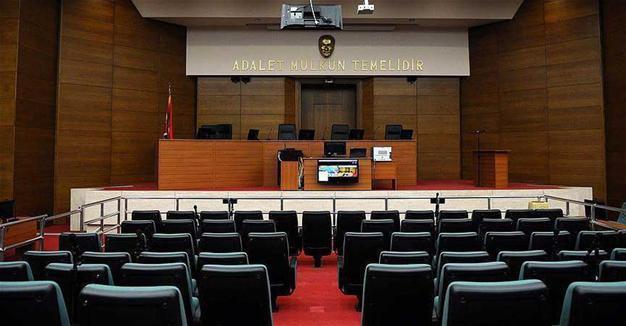Prosecutor seeks 15 years in jail for former prosecutor of MİT trucks case
ANKARA

The Ankara Chief Prosecutor’s Office on April 13 demanded 15 years in jail for the former prosecutor of a controversial National Intelligence Agency (MİT) trucks case on charges of “membership to a terrorist organization,” state-run Anadolu Agency has reported.
The indictment into the prosecutor, Aziz Takcı, was prepared by Prosecutor Veyzi Kaçmaz and delivered to the 18th Ankara Penal Court.
The indictment demanded 7.5 years to 15 years in jail for the prosecutor of being a member of the Fethullahist Terrorist Organization/Parallel State Structure (FETÖ/PDY).
Takcı was also accused of revealing state secrets.
Last year, a crisis erupted after MİT trucks bound for Syria were stopped and searched by authorities on Jan. 1, 2014. The trucks were allegedly carrying weapons and ammunition to militants fighting in Syria.
Meanwhile, Takcı was also accused of using ByLock, an encrypted messaging application that is said to have been used by members of FETÖ.
The Supreme Council of Judges and Prosecutors (HSYK), the top judiciary body in Turkey, on Jan. 14 dismissed Takçı as well as prosecutors Süleyman Bağrıyanık, Ahmet Karaca, Özcan Şişman and Yaşar Kavalcıklıoğlu, who had ordered the MİT trucks to be stopped in southern Turkey.
HSYK stated the prosecutors had committed acts that violated the dignity and honor of their profession as well as the reputation of a public officer.
In January 2014, Hatay Police Department Counter-terrorism and Organized Crime unit officers stopped a truck which had embarked from the southern town of Reyhanlı, a district in Hatay province that borders Syria, on a tipoff that it was carrying arms to Syria. The truck was stopped near a gendarmerie outpost on the Reyhanlı – Kırıkhan road. The driver and two other men in the truck did not allow the police to conduct a search of the cargo as the venue was beyond the police’s area of authority.
 The Ankara Chief Prosecutor’s Office on April 13 demanded 15 years in jail for the former prosecutor of a controversial National Intelligence Agency (MİT) trucks case on charges of “membership to a terrorist organization,” state-run Anadolu Agency has reported.
The Ankara Chief Prosecutor’s Office on April 13 demanded 15 years in jail for the former prosecutor of a controversial National Intelligence Agency (MİT) trucks case on charges of “membership to a terrorist organization,” state-run Anadolu Agency has reported.